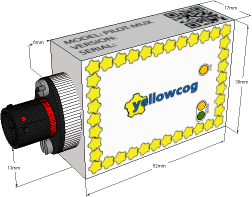The Pilot-MUX is being discontinued due to core components reaching end-of-life. As anyone who has tried to buy components or electronics over the last few years will know, manufacturing lead-times have ballooned, and some items just never resurface. There are many reasons for these supply issues, but it all comes down to the silicon fabrication houses having focused on their core components at the expense of the more niche parts that companies like yellowcog rely on.
Will there be a replacement? This is going to be customer driven. There are certainly many who use the Pilot-MUX that could now move to using the Pilot-CAN and its siblings. For anyone who may still need the MUX specific features then just get in touch and we’ll see what we can do.
The first ever version was released about a decade ago and was named as the Pilot-Cosworth. It was very much a prototype having far more on-board than was needed but still limited to only RS-232 output. It was designed for the Le Mans 24 hour and its success at the race left yellowcog with a new and interesting product that had now been tested in very demanding circumstances.
From the original prototype the first true Pilot-MUX was released in 2014. The fundamental design allowed for collecting wireless data, such as heart and breathing rates and waveforms such as ECG, and outputting these over serial or CAN bus. At the start, each device was configured in-house and then shipped with a fixed role.
It was the Pilot-MUX that drove the development of the Windows configuration software that allows a near-infinite number of ways to configure our devices. This Pilot-MUX configurability led to custom variant boards which in turn led to today’s flagship product, the Pilot-CAN.
So, what of Bluetooth classic connectivity? There are a few products we still use that are better when using Bluetooth classic, primarily the very popular Zephyr BioHarness. But they are becoming fewer and increasingly obsolete items which, if still valid in the domain, are themselves being updated to Bluetooth LE.

